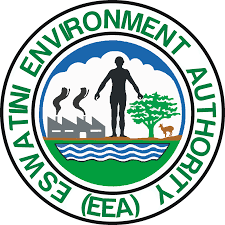About this project
Plastic pollution is a growing environmental challenge in Eswatini, threatening ecosystems, public health, and community well-being. This project seeks to address the problem by empowering Eco club teachers in 12 high schools—three from each of the country’s four regions—to lead innovative and cost-effective waste management initiatives that reduce plastic waste at the source.
The project will begin with a targeted training workshop for the selected eco-club teachers, equipping them with practical knowledge and skills on plastic waste reduction, upcycling techniques, and community engagement strategies. Teachers will also receive guidance on designing and implementing low-cost waste management projects tailored to their school’s unique context and engage in peer-to-peer learning to share best practices- optimizing the performance of Eswatini’s eco-clubs. By positioning teachers as key change agents, the project ensures that the knowledge and practices gained will cascade down to students, fostering sustained environmental stewardship.
To amplify the impact beyond the participating schools, the project will run a nationwide social media campaign focused on raising awareness about the harmful impacts of single-use plastics and encouraging positive behavioural change. This campaign will feature educational content, success stories from eco-clubs, and practical tips for reducing plastic waste in daily life. An online competition will be integrated into the campaign to engage high school eco-clubs across the country, encouraging them to showcase innovative ideas and actions for tackling plastic pollution.
By combining teacher capacity building, youth eco-champion engagement, public awareness, and inter-school collaboration, this project will create a ripple effect of positive change. The immediate outcomes will include reduced plastic waste generation in participating schools, increased student-led environmental initiatives, and heightened public awareness about sustainable waste practices. In the long term, the project will contribute to a cleaner urban environment and nurture a generation of environmentally conscious youth leaders who are committed to protecting Eswatini’s natural heritage.
Through its integrated approach, the project aligns with national and global priorities for environmental protection and sustainable development, particularly Sustainable Development Goal 12 (Responsible Consumption and Production) and Goal 13 (Climate Action). By leveraging existing school structures, embracing cost-effective interventions, and fostering nationwide youth participation, the project offers a scalable and replicable model for tackling plastic waste in Eswatini and beyond.
Goals and Objectives
Goal
To reduce plastic waste in Eswatini by strengthening the capacity of high school Eco-club teachers and learners to lead impactful, innovative, and sustainable plastic waste reduction initiatives that inspire and engage youth.
Objectives
- Enhance the skills and knowledge of 12 Eco-club teachers from all four regions to design, implement, and sustain cost-effective plastic waste management programs.
Increase collaboration and peer learning among Eco-club teachers through structured networking and experience-sharing platforms. - Amplify youth engagement in plastic waste reduction through a nationwide social media campaign and an online competition.
- Strengthen the visibility and adoption of innovative, school-based climate action initiatives aligned with SDG 13.
Expected result
Result 1: By month 3 of the project, 12 Eco-club teachers (three from each of Eswatini’s four regions) will have successfully completed targeted training on designing, implementing, and sustaining innovative plastic waste reduction initiatives, with post-training assessments showing at least a 40% improvement in knowledge compared to baseline.
Result 2: Within six months, all 12 participating schools will have launched at least one new or improved plastic waste reduction initiative—such as plastic collection drives, upcycling projects, or in-school awareness campaigns—documented through teacher reports, photos, and student participation records.
Result 3: By the end of the 10-month period, a minimum of 600 students (averaging 50 per school) will have actively participated in Eco-club-led activities aimed at reducing plastic waste, with participation tracked through attendance logs and activity records maintained by Eco-club teachers.
Result 4: Between months 2 and 9, a nationwide social media campaign will be implemented, reaching at least 10,000 youth online as measured through platform analytics and competition records.
Result 5: By the close of the project, at least 65% of participants reporting, via post-workshop surveys, that networking with other teachers improved their ability to design impactful environmental programs
Monitoring Capacity: The project team will employ pre- and post-training tests, attendance registers, photographic evidence, teacher activity logs, and social media analytics to track progress toward each result. Quarterly monitoring will capture both quantitative and qualitative data, enabling timely course corrections to meet or exceed the set targets.
Partners

About me / organisation
Mpumalanga Zwane
Mpumalanga Zwane is a 29-year-old agile young woman with a BA Social Science (Hons) from the African Leadership University, and posses over 3 years in Project Management, communications and youth engagement skills. She sits as the Youth Board Member under the Global Fund and is an Alumni of the Young African Leaders Initiative. Through her work as Projects Officer with YSDC, she actively engaged youth in climate and environmental action projects, including ensuring that youth voices are heard at all levels of development.
Website Website